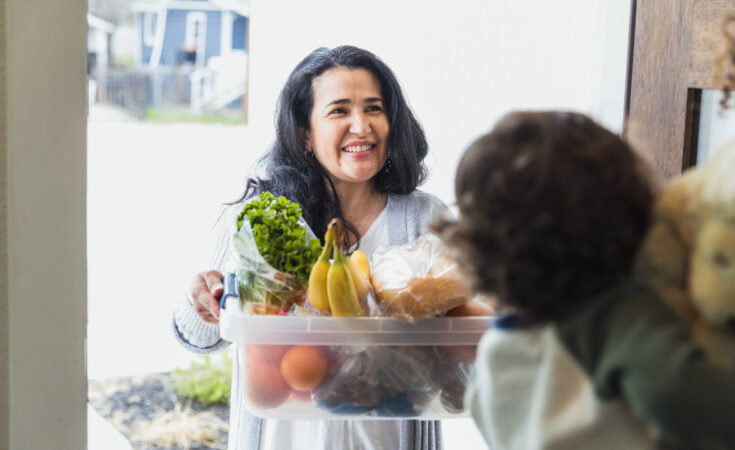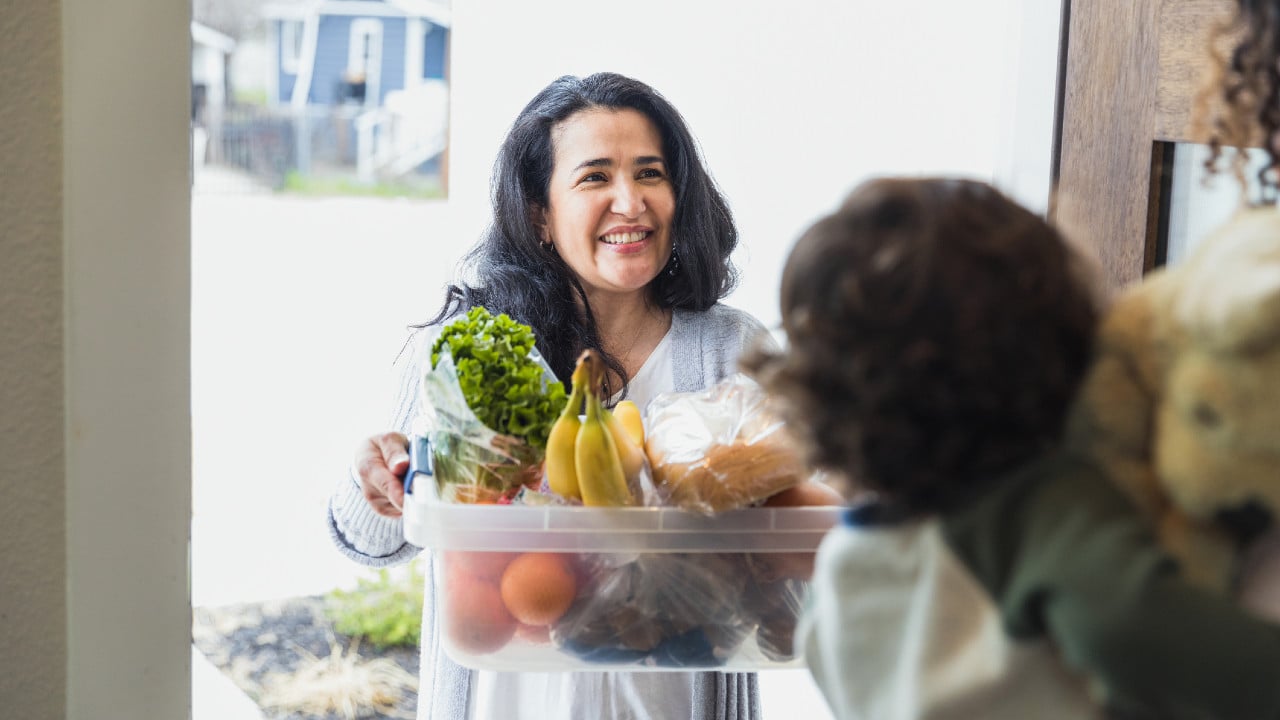My son’s stint in the ICU showed me that grand gestures are not what’s most helpful to a family—it’s the smaller things that count.
GoFundMe campaigns are the first stop for many people who want to help a friend or a family in crisis. But do these do-gooders with the best of intentions stop to ask what the friend in need actually needs?
Five years ago, my son was injured in a biking accident. A deer jumped in front of him as he trundled down a mountain at mach speed. The result was a handlebar in the gut that ripped his ileocecal artery (the path of blood supply to the leg) and an emergency surgery followed. In short, it was terrifying. In the weeks to follow, I wanted to be with our son in the ICU, but we also had a ten-year-old and a house full of pets at home. The support of our Kamloops, B.C. community is what made it possible to cope during this time when I couldn’t think straight.
I made mental notes of the type of help that made the greatest difference to our family so I could pay it forward down the road. This is what I came up with:
1. Be specific with offers of help
Saying “let me know if I can help” is kind, but not very useful. At the start of a crisis, you don’t yet know what you need help with. People who reached out to me with specific offers of help, like “Can we walk your dogs?” were most helpful. Help with identifying what might need to be done and offering to do it (or to help find a way to get it done) was crucial.
2. Think dependents
Offer to help with any dependents. Walking dogs, feeding cats, driving kids to school or even watering plants takes off an enormous load. Try to make it as easy as possible by asking for what you need to get the job done (e.g., “I’ll walk the dogs. How do I get into the house? Where do you keep the leashes?”). Send a brief text when the task is complete so they have one less thing niggling at them.
3. Don’t ask for updates
Text words of support, but don’t expect a response. Texts that require a response such as, “How are they doing?” Or “Update?” feel like work. A simple, “We are thinking of you all” is perfect. Tacking on “No need to respond” would be a bonus.
4. Curate entertainment
When a family is helping a child recover, there will come a time when the kid is well enough to sit up and get bored. At that point, any and all suggestions for ways to pass time are so appreciated. You could introduce the family to a new board game (it’s how we discovered Qwirkle), or drop off drawing, doodling and writing supplies.
5. Minimize the need to return stuff
Label (with your name) anything you lend to a family in crisis, be it food containers, games or health aides. I desperately wanted to return items that generous folks had brought to us, but I couldn’t remember what came from whom. Truth be told, I could barely remember who showed up on our doorstep with offerings, making some of them impossible to return. Yet it bothered me that I hadn’t yet returned these things and I felt sheepish asking who the things belonged to because somehow I felt that not knowing would suggest that I didn’t care enough to remember (ridiculous, but true).
If you’re bringing someone food, consider delivering it in disposable, recyclable vessels, or tape on a note that reads, “I don’t need the container back.” If a loved one is in hospital, bring a pillow. A nurse-friend popped into the ICU the morning after our son’s surgery with a pillow, all too aware of how sucky institution-grade pillows are. Her gift made for better sleeps, plus it was used to prop up my son in bed so he could play games and draw. Even I used the pillow for short naps in my chair. But mostly I’m grateful for the pillow because it was the impetus for an eventual pillow fight between our boys that somehow reassured me that everything was going to be OK.
Our son is now a teenager and he’s back on his mountain bike, once again riding ferociously (albeit a little less so than before). We continue to be outrageously grateful to the people who supported us during our most difficult time as a family yet.
Stay in touch
Subscribe to Today’s Parent’s daily newsletter for our best parenting news, tips, essays and recipes.
= 0;if(!is_postback){return;}var form_content = jQuery(this).contents().find(‘#gform_wrapper_13’);var is_confirmation = jQuery(this).contents().find(‘#gform_confirmation_wrapper_13’).length > 0;var is_redirect = contents.indexOf(‘gformRedirect(){‘) >= 0;var is_form = form_content.length > 0 && ! is_redirect && ! is_confirmation;var mt = parseInt(jQuery(‘html’).css(‘margin-top’), 10) + parseInt(jQuery(‘body’).css(‘margin-top’), 10) + 100;if(is_form){jQuery(‘#gform_wrapper_13’).html(form_content.html());if(form_content.hasClass(‘gform_validation_error’)){jQuery(‘#gform_wrapper_13’).addClass(‘gform_validation_error’);} else {jQuery(‘#gform_wrapper_13’).removeClass(‘gform_validation_error’);}setTimeout( function() { /* delay the scroll by 50 milliseconds to fix a bug in chrome */ jQuery(document).scrollTop(jQuery(‘#gform_wrapper_13’).offset().top – mt); }, 50 );if(window[‘gformInitDatepicker’]) {gformInitDatepicker();}if(window[‘gformInitPriceFields’]) {gformInitPriceFields();}var current_page = jQuery(‘#gform_source_page_number_13’).val();gformInitSpinner( 13, ‘https://www.todaysparent.com/wp-content/plugins/gravityforms/images/spinner.gif’ );jQuery(document).trigger(‘gform_page_loaded’, [13, current_page]);window[‘gf_submitting_13’] = false;}else if(!is_redirect){var confirmation_content = jQuery(this).contents().find(‘.GF_AJAX_POSTBACK’).html();if(!confirmation_content){confirmation_content = contents;}setTimeout(function(){jQuery(‘#gform_wrapper_13’).replaceWith(confirmation_content);jQuery(document).scrollTop(jQuery(‘#gf_13’).offset().top – mt);jQuery(document).trigger(‘gform_confirmation_loaded’, [13]);window[‘gf_submitting_13’] = false;}, 50);}else{jQuery(‘#gform_13’).append(contents);if(window[‘gformRedirect’]) {gformRedirect();}}jQuery(document).trigger(‘gform_post_render’, [13, current_page]);} );} );]]>
Read The Full Article Here



































